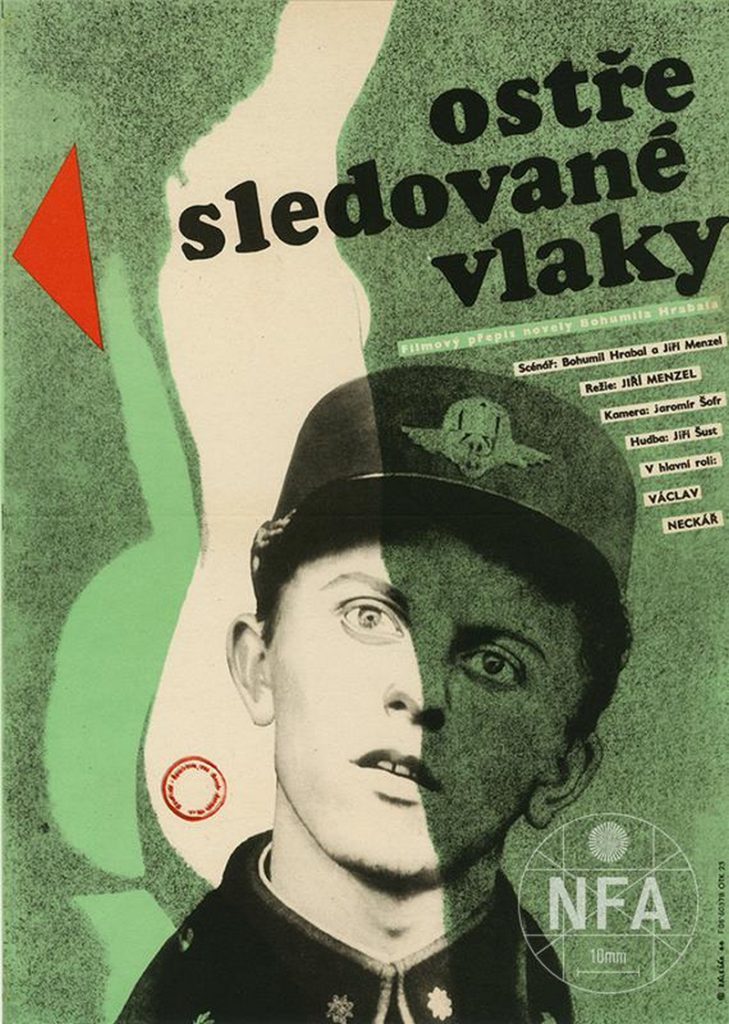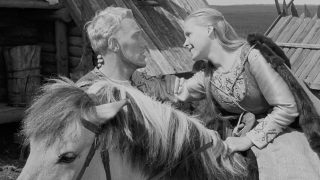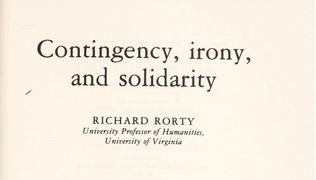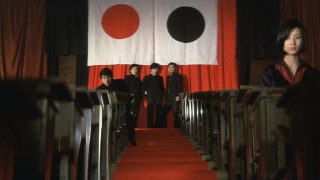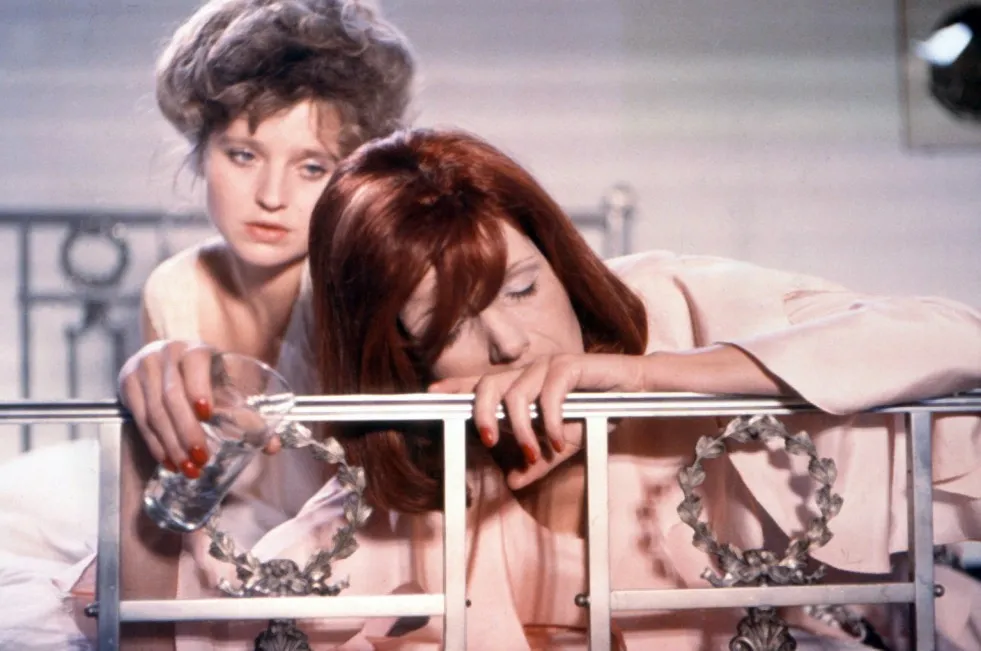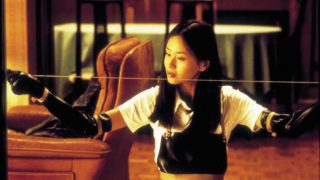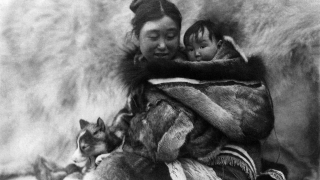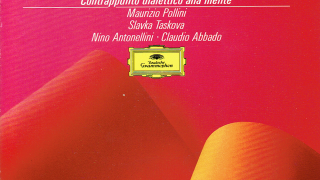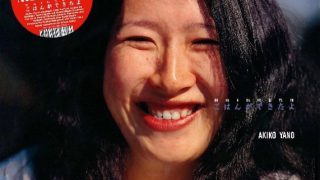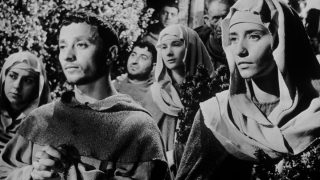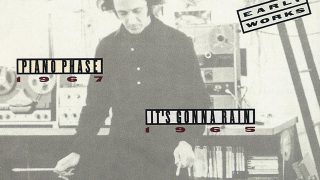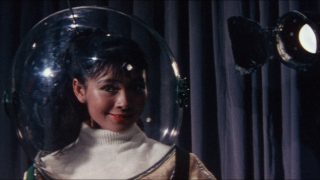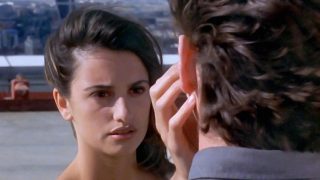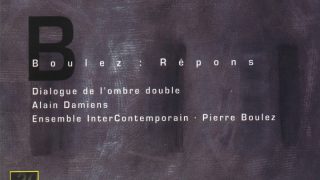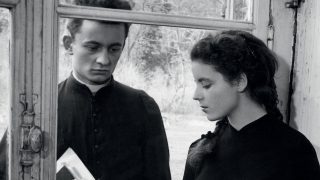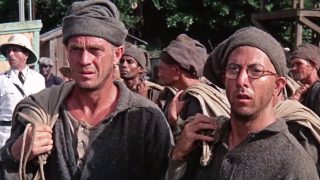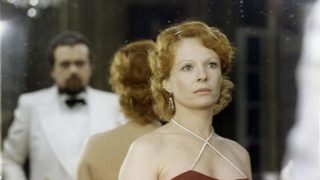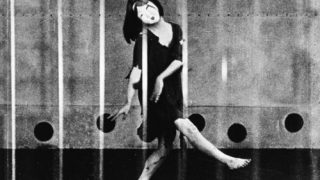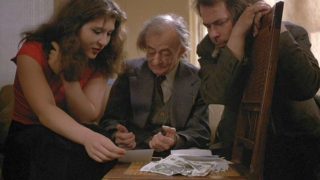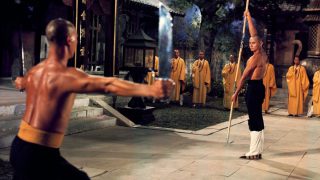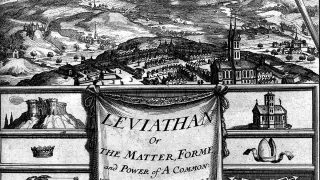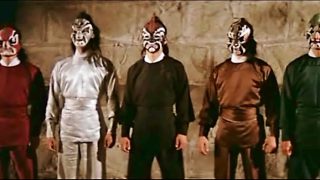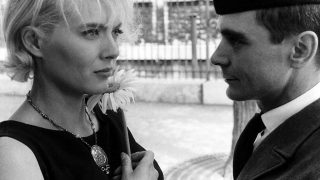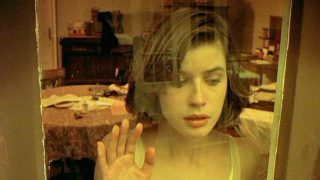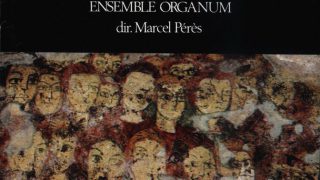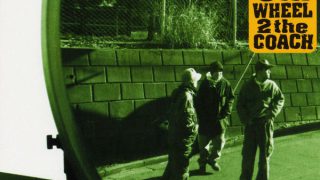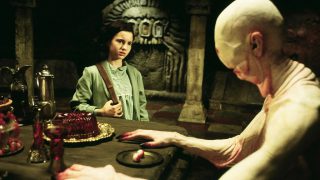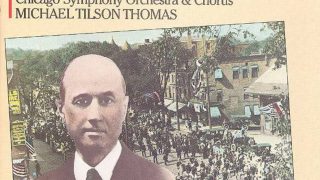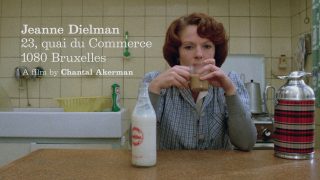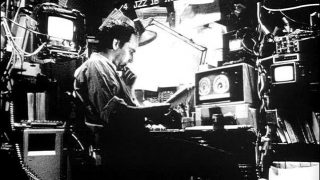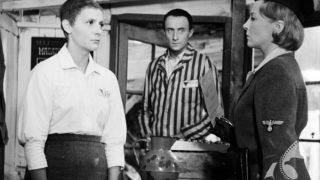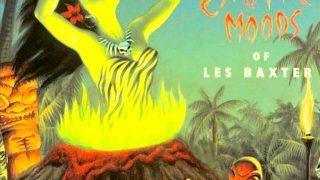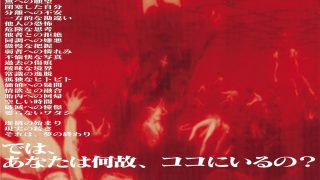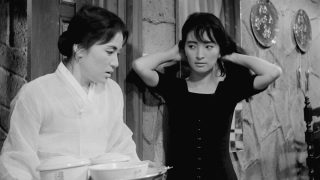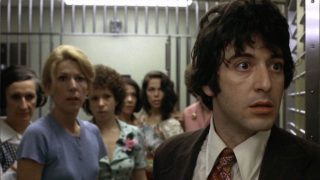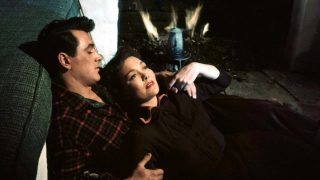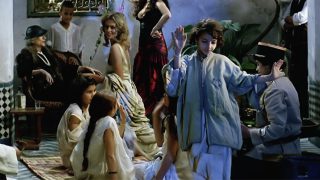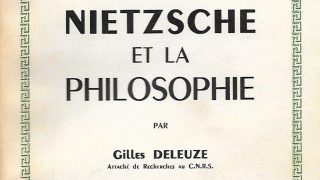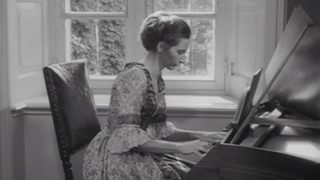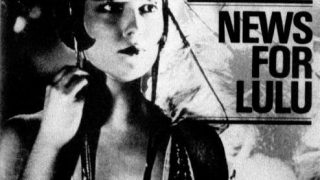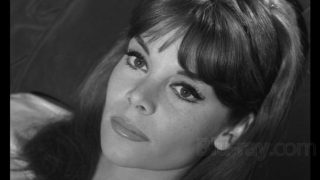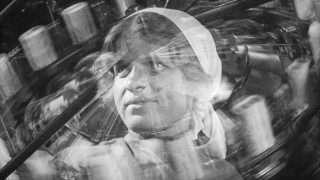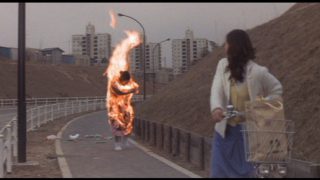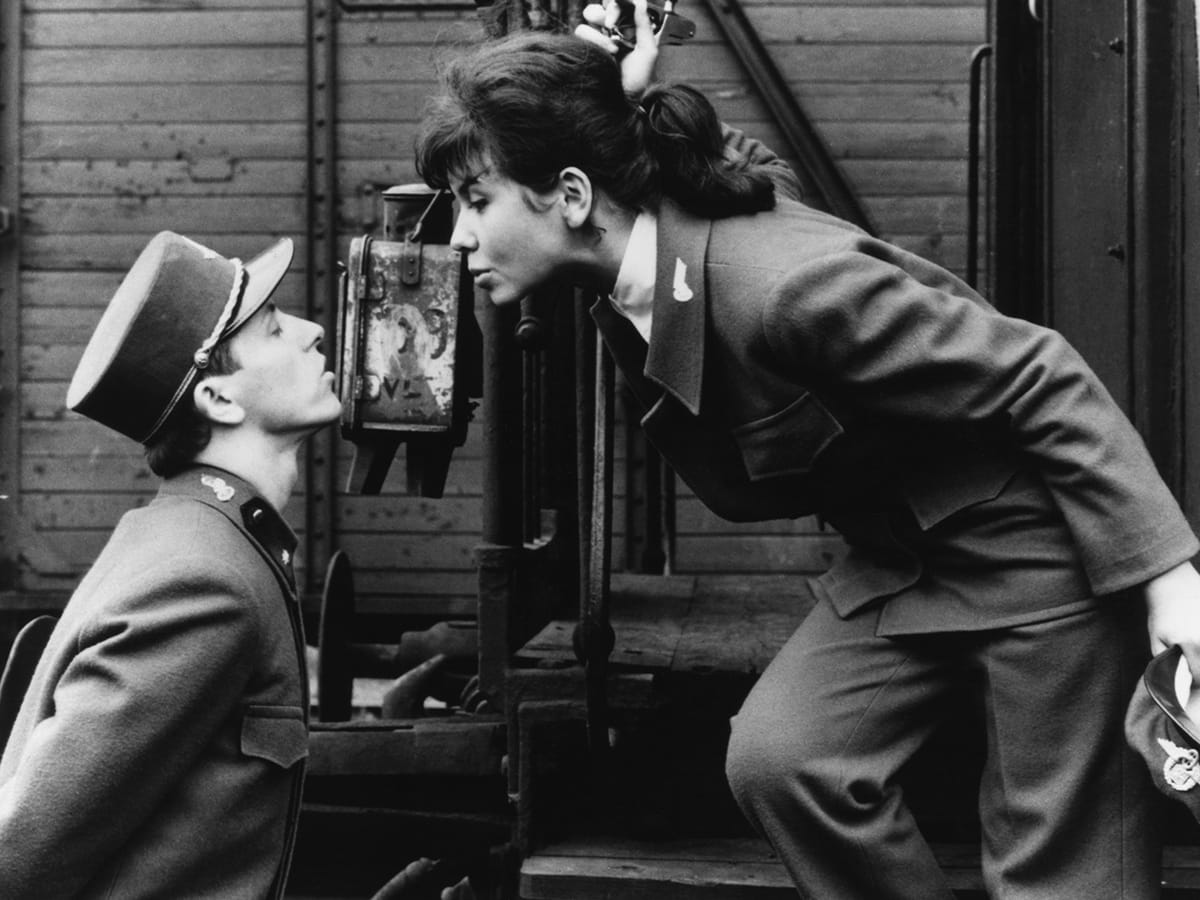Overview
“Closely Watched Trains (Ostře sledované vlaky)” is a 1966 Czechoslovak film directed by Jiří Menzel. Set in a small village in Czechoslovakia, which was annexed by Nazi Germany and became a protectorate during World War II. It depicts the tragicomedy of a young trainee station staff who has a sexual problem. Based on the novel of the same name (1965) by Bohumil Hrabal. Screenplay by Jiří Menzel and Bohumil Hrabal. Black & white. 93 minutes.
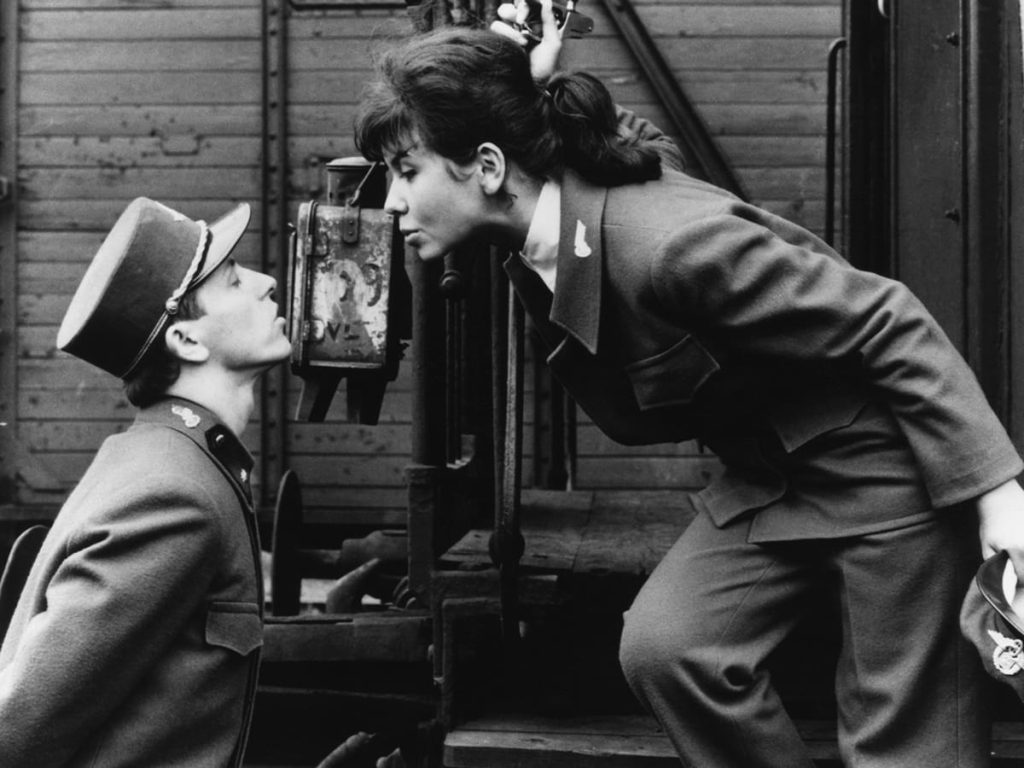
Plot
A young man named Miloš Hrma (Václav Neckář) is engaged as a trainee train dispatcher at a small railway station in the village of Kostomlaty in Czechoslovakia. His dream is to be like his father, who had been a train driver, but retired early and lives an idle life without working.
Miloš starts working under Stationmaster Lanska (Vladimír Valenta), who is an enthusiastic pigeon-breeder, and train dispatcher Hubička (Josef Somr), who is a womanizing man.
Miloš sometimes meets his girlfriend Máša (Jitka Bendová), who works as the conductor of the train that stops at the station. Miloš is still a virgin, and he maintains a platonic relationship with Máša.
One night, Miloš is invited by Máša to stay with her at the house of her uncle who runs a photo studio. He tries to have sex with her, but he fails because of his premature ejaculation.
The next morning, when Miloš is going to go home, Máša’s uncle’s house and photo studio are destroyed in an aerial bombing. Máša’s uncle laughs loudly, finding that he miraculously survived even though he was in bed sleeping at home.
Miloš loses male’s confidence, and despair of life. He tries to kill himself by cutting his wrists at a brothel, but he is saved from death by a house repair worker, who happens to find him lying and bleeding, and brings him to the hospital.
A young doctor at the hospital, Brabec (Jiří Menzel) counsels him to seek out an experienced woman to help him through his first sexual experience.
Miloš asks Stationmaster Lanska’s wife to teach him to have sex, but she rejects it.
During the night shift, Hubička flirts with young telegraphist Zdenička (Jitka Zelenohorská), and imprints her thighs and buttocks with the office’s rubber stamps. Seeing the stamps on her daughter’s body, her mother reports it to the police, but the police deride her claims.
One night, a glamorous woman of the anti-Nazi resistance group, code-named “Viktoria Freie” (means “victory and freedom” in German) (Naďa Urbánková), comes to the station. She delivers a time bomb to Hubička for blowing up a Nazi Germany’s explosives-filled train that will pass through the station tomorrow.
Hubička pushes Miloša into the stationmaster’s office where Viktoria is resting. She pulls him gently into her arms.
The next morning, Miloša starts working with a confident look on his face.
When the Nazi Germany train is approaching the station, Councilor Zedníček (Vlastimil Brodský), who is a Nazi collaborator and is in charge of “closely watched trains” (trains carrying supplies to the German army), comes to the station with Zdenička and her mother to have a hearing on Hubička’s rubber-stamping on Zdenička.
On behalf of Hubička who is caught up in the hearing, Miloša drops the time bomb onto the train from a semaphore signal gantry above the tracks. A machine-gunner on the train sprays Miloša with bullets, and Miloša falls onto the train.
Commentary
“Closely Watched Trains” is a coming-of-age comedy film known as one of the Czechoslovak New Wave films in the 1960s.
Though the ending is tragic, it is basically a humorous film. It is characterized by its ambiguity as if being suspended between tragedy and comedy, and the heavy use of sexual metaphors.
Thf film won the Grand Prize at the 1966 Mannheim-Heidelberg International Filmfestival, and the Best Foreign Language Oscar at the 40th Academy Awards in 1968.
